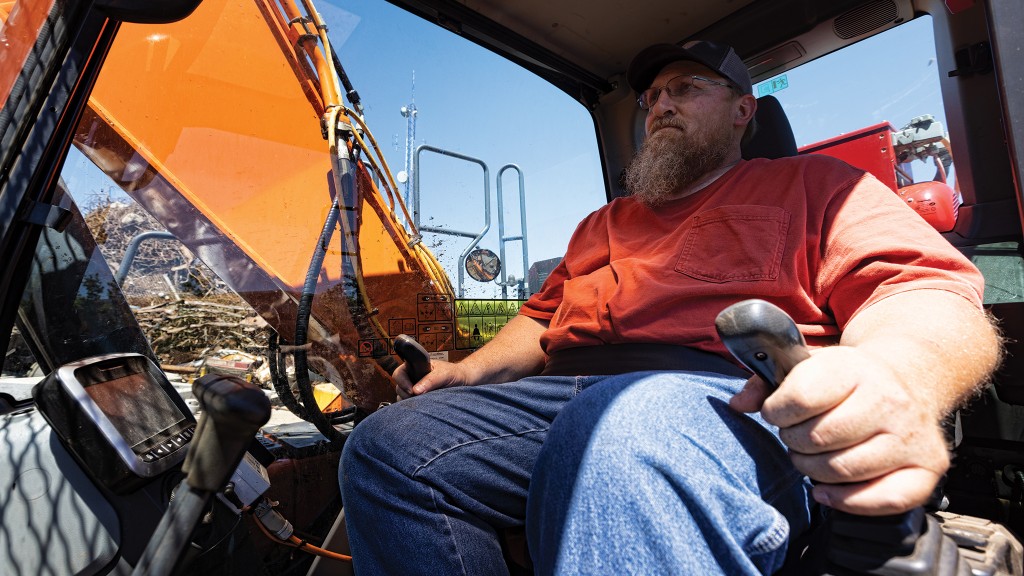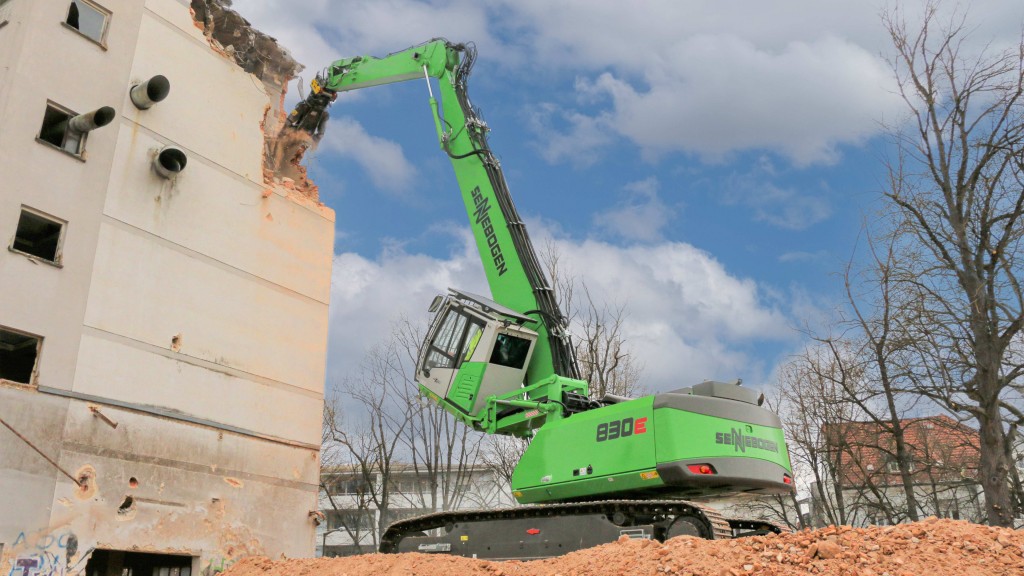6 things to consider when training material handler operators
Following operation instructions, safety guidelines, and routine maintenance is essential

Inadequate training for heavy equipment operators is a significant contributor to accidents and fatalities, according to the Occupational Safety and Health Administration (OSHA). Proper training can reduce these risks.
"Material handler operators must possess a deep understanding of safety protocols, regulatory compliance, and effective communication practices," says Troy Hitchcock, heavy equipment product specialist at DEVELON.
Here are several factors to consider when it comes to training and skills development for material handler operators.
1. Understand proper operating practices for material handlers
All employees who will be operating material handlers need to undergo adequate training, whether it be in a classroom setting or through hands-on instruction. They should possess a general understanding of the basic functions of a machine's controls, gauges, signals, indicators, and monitor displays before operating. A critical component of this understanding is the ability to comprehend the instructions specified in the manufacturer's operation and maintenance manual.
"The manual serves as a primary guide for proper material handler operation and maintenance, and it is provided upon delivery from your local dealership," says Hitchcock. "The manual can be kept in the machine's cab for quick reference. An electronic copy, such as a PDF, may be available on a smartphone or tablet."
The Association of Equipment Manufacturers (AEM) safety manuals, available in print and digital formats, also serve as references on proper operating practices.
Before operation and maintenance, operators should review safety and instructional decals. Some manufacturers strategically place decals on the interior and exterior of heavy equipment to alert operators about potential hazards, the consequences of injury, and instructions on how to avoid the hazard. Replace decals that become worn, damaged, or missing.
2. Turn to local dealerships for knowledge
Hitchcock emphasizes that dealer service technicians also possess the necessary product knowledge and experience to troubleshoot and maintain material handlers. Their familiarity with the machinery enables them to explain recent technology updates, facilitate demonstrations, and help operators maximize their machine's performance.
3. Follow safety guidelines
To stay safe at a recycling facility, understand and follow safety guidelines, such as wearing protective clothing and personal safety devices.
Personal protection equipment (PPE) may include the following items:
- Hard hat
- Safety shoes
- Safety glasses
- Heavy gloves
- Hearing protection
- Reflective clothing
PPE standards may vary by location, so always check local requirements.
"Use the grab handles and steps that are provided for three points of contact when entering and exiting the material handler, wear tight-fitting clothing that cannot get caught on working components or the machine, and always wear a seatbelt," says Hitchcock.
4. Familiarize yourself with machine features
Material handlers can be highly technical, especially with the evolution of smarter technologies. For example, certain machines are equipped with selectable power modes designed to help operators balance fuel consumption and machine power according to working conditions. Select models may feature a lifting work mode, providing increased pump torque, low engine rpm, and automatic power boost.
"Efficient and safe operation may include using camera systems, such as the around view monitor (AVM) camera system, which have become very popular on heavy equipment like material handlers," Hitchcock says. "These systems use cameras mounted on the machine to provide as much as 360 degrees of visibility to the surrounding area, giving the operator better situational awareness."
AVM systems allow operators to identify potential hazards and obstacles that might not be visible from their seat, reducing the risk of accidents and injuries. These systems can also improve productivity and efficiency by reducing the time required for operators to look around and check their surroundings manually.
Object detection is another newer technology that improves safety by enhancing operator awareness.
"Sensors emit a sound to alert the operator when they are about to bump into a person or object entering the operation area," Hitchcock says. "The sound may get louder or more frequent the closer the machine gets to the object or person."
Familiarize yourself with multi-functional display panels before operating. Display panels show critical machine data, such as speed, engine rpm, transmission gear, machine warnings, coolant temperature, and transmission oil temperature. Some manufacturers offer display panels that provide machine parameters while showing the rear-view or side-view camera image. Other features can include travel alarms/backup alarms, work lights, mirrors, and a horn, depending on the material handler.
5. Make maintenance and pre-checks part of your routine
Before beginning work, take a few minutes to walk around the material handler to look for potential issues. A few tips from Hitchcock include:
- Check for broken, missing, or damaged parts and make necessary repairs.
- Ensure that there are no damaged or missing safety or instructional decals and replace them if needed.
- For wheel models, inspect tires for cuts, tearing, or over-inflation and replace tires if needed.
- Check wheels for damaged rims and missing or loose wheel nuts or bolts. Repair or replace as needed.
- Review tracks for broken or damaged pins, bushings, or other track parts. Replace worn or damaged tracks.
- Check the fluid levels, including engine hydraulic oil and coolants, and fill as necessary.
- Look for leaks, and have any leaks repaired.
- Remove any flammable debris from the engine compartment and battery box, around exhaust components, under the machine, and around rotating parts.
- Inspect lights, cab glass, side mirror, and rear-view camera (if present) for damage.
- Clean and inspect all walking surfaces, steps, and grab handles.
- Check the hydraulic risers on select models to make sure they are fully functioning.
Material handler operators should complete pre-operational equipment checks on a routine basis. Some maintenance items may need to be completed by an authorized equipment dealership. Typical maintenance procedures, which are outlined in the maintenance manual, can be performed without any technical training.
6. Learn how to maintain scrap-handling attachments
Lastly, operators should understand how to use and maintain scrap-handling attachments, such as grapples, shears, and magnets. Each attachment functions differently, so work closely with a local dealership to determine the right attachment for your application. Knowing the machine's specifications before pairing it with an attachment can help reduce operator hazards and increase productivity.
"Operators should be able to see the attachment working at ground level from a normal seated position in the cab," Hitchcock says. "Being able to comfortably see the attachment out front and having an unobstructed view of the machine's rear is critical to proper machine operation."
Training and skills development for material handler operators can help reduce the risk of accidents and improve overall operational efficiency in material handling processes. Regular assessments and continuous improvement efforts are essential to keep operators up to date with the latest industry standards and technologies.
Allison Grettenberg is the PR and content strategy specialist at Two Rivers Marketing in Des Moines, Iowa.



